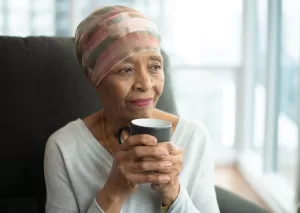The Impact of Chemotherapy on Daily Life: What You Need to Know
As you embark on your chemotherapy journey, you may feel overwhelmed by the potential impact on your daily life. Understanding what to expect can help you navigate this challenging time with greater confidence. From managing side effects to adjusting your routine, chemotherapy will likely affect various aspects of your day-to-day activities. This article aims to provide you with essential information about how chemotherapy may influence your daily life, offering insights into common challenges and practical strategies for coping. By familiarizing yourself with these potential changes, you can better prepare for the road ahead and focus on your treatment and recovery.
Understanding Chemotherapy Side Effects
Chemotherapy effects can significantly impact daily life. Common side effects include fatigue, nausea, hair loss, and weakened immune system. Fatigue is often the most prevalent, affecting energy levels and daily activities. Nausea and vomiting may occur, but anti-nausea medications can help manage these symptoms. Managing chemotherapy side effects is crucial for maintaining quality of life during treatment. Patients should communicate openly with their healthcare team to address concerns and optimize symptom management strategies.
Common Physical Side Effects
Chemotherapy effects can significantly impact daily life. Fatigue is one of the most common side effects, often leaving patients feeling exhausted. Nausea and vomiting are also frequent, but can be managed with anti-sickness medications. Hair loss, while temporary, can be distressing. Managing chemotherapy side effects is crucial, as they may include anemia, easy bruising, and increased susceptibility to infections. Skin changes, mouth sores, and appetite loss are also common challenges patients face during treatment.
Coping With Fatigue and Hair Loss
Managing Chemotherapy Effects
Cancer-related fatigue is a common side effect of chemotherapy, causing extreme tiredness that rest doesn’t relieve. To cope, prioritize important activities, take short naps, and engage in light exercise like walking. Proper nutrition and hydration are crucial for maintaining energy levels. For hair loss, consider scalp cooling caps or explore head coverings like wigs or scarves. Remember, managing chemotherapy side effects is a personal journey, so communicate openly with your healthcare team.
Managing Nausea and Appetite Changes
Chemotherapy effects can significantly impact your daily eating habits. Nausea and vomiting are common side effects that may start a few days after treatment. To manage these symptoms, try eating smaller, frequent meals and avoiding strong odors. Sip clear liquids slowly throughout the day and opt for bland, room-temperature foods. Managing chemotherapy side effects often involves anti-nausea medications prescribed by your doctor. If symptoms persist, don’t hesitate to seek medical advice.
Neuropathy and Other Nerve Issues
Understanding Chemotherapy-Induced Peripheral Neuropathy
Chemotherapy can have significant chemotherapy effects on the nervous system, particularly in the form of chemotherapy-induced peripheral neuropathy (CIPN). This condition affects an estimated 30-50% of patients receiving certain chemotherapy drugs, causing symptoms like tingling, numbness, and pain in extremities. Managing chemotherapy side effects related to CIPN often involves a combination of medications, physical therapy, and lifestyle adjustments to improve quality of life during and after treatment.
Emotional and Cognitive Side Effects
Chemotherapy can profoundly impact your emotional and mental well-being. You may experience mood swings, anxiety, or depression as you navigate the challenges of treatment. Managing chemotherapy side effects extends beyond physical symptoms to include these psychological aspects.
“Chemo brain” is a common cognitive effect, characterized by memory issues and difficulty concentrating. According to Mayo Clinic, these chemotherapy effects can persist for months or even years after treatment ends. Implementing coping strategies and seeking support can help mitigate these emotional and cognitive challenges.
FAQs on Managing Chemotherapy Side Effects
How can I manage nausea and vomiting?
To manage chemotherapy effects like nausea and vomiting, eat 5-6 small meals instead of 3 large ones. Avoid strong-smelling, sweet, fried, and fatty foods. Your doctor may prescribe anti-nausea medications. Stay hydrated by drinking 8-10 glasses of liquids daily. Complementary therapies like acupuncture and relaxation techniques can also help in managing chemotherapy side effects.
Conclusion
As you navigate the challenges of chemotherapy, remember that its effects on daily life are significant but manageable. By anticipating potential side effects and making necessary lifestyle adjustments, you can maintain a sense of normalcy during treatment. Lean on your support network, communicate openly with your medical team, and prioritize self-care. While chemotherapy may temporarily disrupt your routine, it’s a powerful tool in your fight against cancer. Stay informed, be patient with yourself, and focus on the ultimate goal of improved health. With proper preparation and a positive mindset, you can face this journey with resilience and hope for the future.
Disclaimer: The content for this article is for informational purposes only and is not a substitute for professional medical advice, diagnosis, or treatment. Always consult your oncologist with any questions regarding a medical condition. Do not disregard medical advice or delay seeking it based on information from this site.

